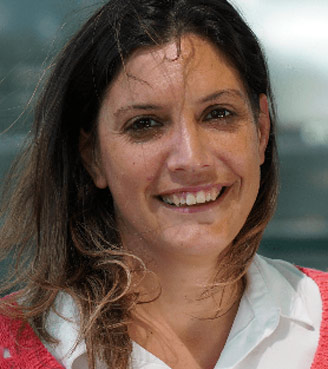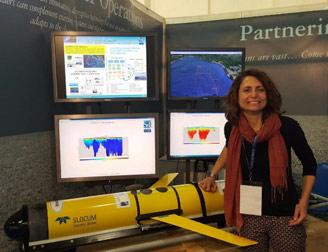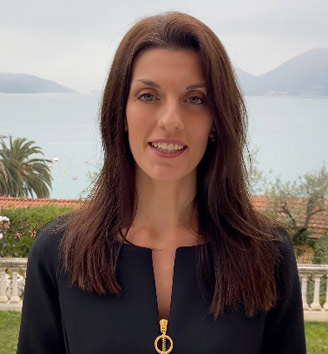Download NATO’s broadcast-quality video content free of charge

Log in
NATO MULTIMEDIA ACCOUNT
Access NATO’s broadcast-quality video content free of charge

Check your inbox and enter verification code
You have successfully created your account
From now on you can download videos from our website
Subscribe to our newsletter
If you would also like to subscribe to the newsletter and receive our latest updates, click on the button below.
Enter the email address you registered with and we will send you a code to reset your password.
Didn't receive a code? Send new Code
The password must be at least 12 characters long, no spaces, include upper/lowercase letters, numbers and symbols.
Your password has been updated
Click the button to return to the page you were on and log in with your new password.
On the occasion of International Women’s Day celebrated on 8 March, three women working at the NATO Centre for Maritime Research and Experimentation (CMRE) in Italy share their inspirational stories and explain why equal participation of men and women is essential when fighting for gender equality around the world.
This international day aims to raise awareness of gender perspectives and the principles of United Nations Security Council Resolution 1325 on Women, Peace and Security. Learn more about the stories of three scientists working at one of NATO’s research facilities.

Pilar Caamaño Sobrino is a Spanish computer scientist with a PhD in Artificial Intelligence. At the CMRE in La Spezia, she focuses on simulated solutions for testing autonomous systems in virtual environments, especially underwater autonomous vehicles.
“Autonomous systems such as underwater smart robots are important technologies for NATO Allies. They can reduce risk to humans by performing hazardous tasks, and this especially applies to the underwater domain,” she says. Navies, industry and research centres are investigating how to move future maritime operations forward, where multiple autonomous underwater vehicles can work collaboratively with minimal human interaction. Modelling and simulation are proving to be a capable support.
On the equal participation of men and women, Pilar considers that “what is important is that everyone in every society has the freedom to choose and to live the way they want. Historically, for women, overcoming inequality has been difficult, and my predecessors had to stand up for women’s rights so I can be free to choose my own path.”
The message she would like to send to women and girls is that “If you want to go fast, go alone. If you want to go far, go together. [… ] Listen to others, regardless of their gender, culture, age, position. Learn from them.”

Ines Borrione holds a PhD in Oceanography and is a junior Italian scientist working as a physical oceanographer at the CMRE. She processes and analyses the oceanographic data collected during the CMRE’s sea trials.
“Several NATO operations take place at sea, often in regions that are not well known,” Ines explains. “Our role as oceanographers is to retrieve and analyse all the available data in order to characterise and monitor the current ocean conditions, contributing to accurate ocean-state forecasts. The safety and success of NATO operations, which are in the interest of all NATO citizens, rely on these accurate ocean-state forecasts.”
As a woman, she considers that the most challenging part in her professional life is finding the best equilibrium between work, career and a growing a family. To further enhance the integration of women, she thinks that,“options like long or flexible parental leave, flexible working hours and teleworking are certainly a great help. […] These are all options that have made a difference to me.”
To the next generation of women scientists, Ines states that any unforeseen difficulties should never stop them from dreaming and from turning expectations into reality. “This is why I always encourage everyone to follow their dreams. As a little girl I wanted to become a scientist and a mother - today I am very proud to say I have become both!”

Francesca de Rosa is an Italian scientist holding a PhD in Electronic and Telecommunication Engineering with a focus on interactive cognitive environments. She is working on different projects related to maritime surveillance and maritime situational awareness at the CMRE. Her main research areas include cognitive systems, knowledge engineering and human system integration.
“Many of the cognitive tasks on which decision-making is grounded are gradually being delegated to machines to assist human operators in different working environments such as safety, security, crises management, health and first aid,” says Francesca. These decision support tools enhance operators’ situational awareness leading to better, faster decision-making.
On the occasion of International Women’s Day, Francesca has always thought that it is not as much for celebration, but rather a day for raising awareness. “It should remind us that the freedom of choice that women have in our countries are not the same in other parts of the world. Looking at my young daughter growing up, I sometimes have found myself thinking on how I would have felt as mother in a society where she is not able to meet her full potential.”
Centre for Maritime Research and Experimentation (CMRE)
The Centre for Maritime Research and Experimentation, under the umbrella of the NATO Science and Technology Organization, is an established, world-class scientific research and experimentation facility located in La Spezia, Italy. The CMRE organises and conducts scientific research and technology development, centred on the maritime domain, delivering innovative and field-tested Science & Technology solutions to address defence and security needs of the Alliance.

